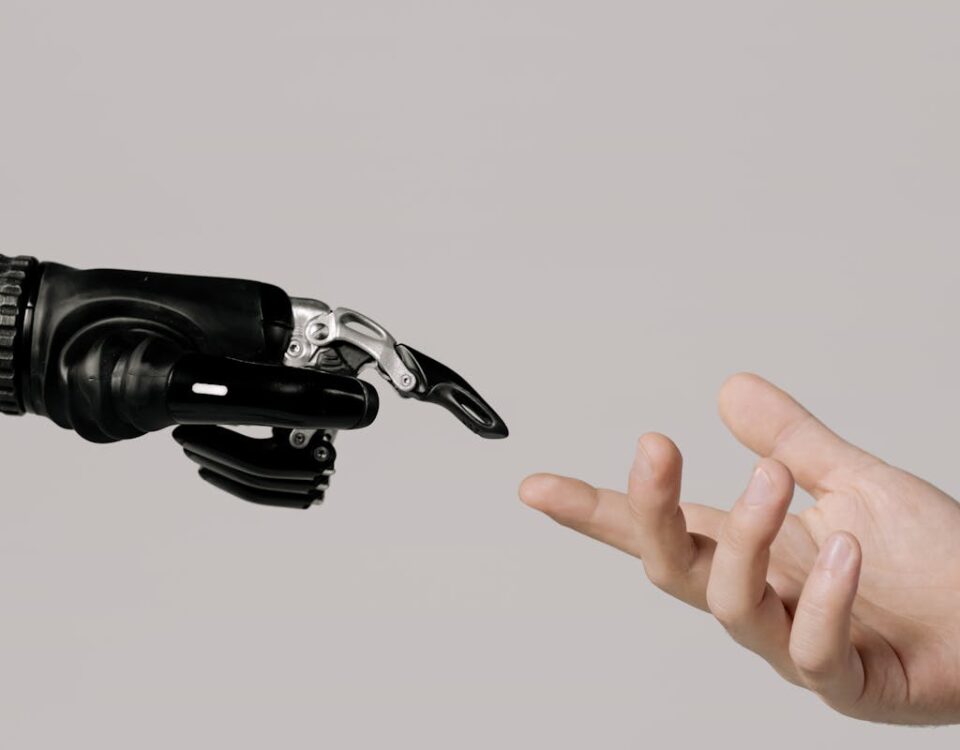
E-learning in the Digital Age
May 1, 2024
Tech Evolution: Robotics, Automation, and AI at Work
May 3, 2024In the fast-paced 21st-century landscape, technology has become a driving force in reshaping our world. Beyond convenience and entertainment, it has emerged as a powerful tool in addressing some of our time’s most pressing social and environmental challenges. From climate change and pollution to healthcare and education, innovative technologies pave the way for a more sustainable and equitable future.
1. Renewable Energy and Climate Change
One of the most significant global challenges we face is climate change. Rapid industrialization and dependence on fossil fuels have increased greenhouse gas emissions, contributing to global warming. Fortunately, technology is playing a crucial role in mitigating these effects. The rise of renewable energy sources, such as solar and wind power, has reshaped the energy landscape. Advanced energy storage, grid management, and smart infrastructure technologies make transitioning toward a cleaner, more sustainable energy future possible.
2. Smart Cities for Sustainable Living
As the world’s population continues to urbanize, the concept of smart cities has gained momentum. Technology is being employed to create more efficient and sustainable urban environments. Smart city initiatives involve:
- Integrating data and technology into urban infrastructure.
- Optimizing energy usage.
- Improving transportation systems.
- Enhancing overall resource management.
By implementing IoT (Internet of Things) devices and data analytics, cities can reduce their ecological footprint and improve residents’ quality of life.
3. Precision Agriculture for Food Security
Feeding a growing global population while preserving natural resources is a significant challenge. Technology is revolutionizing agriculture through precision farming techniques. Drones, sensors, and data analytics enable farmers to monitor and optimize crop yields, reduce water usage, and minimize the need for pesticides. This ensures food security and promotes sustainable farming practices, preserving soil health and biodiversity.
4. Healthcare Accessibility and Telemedicine
Access to quality healthcare remains a critical issue in many parts of the world. Technology is breaking down barriers by improving healthcare accessibility and delivery. Telemedicine, enabled by high-speed internet and mobile devices, allows people to consult with healthcare professionals remotely. Wearable devices and health apps empower individuals to monitor their well-being, promoting preventive care and early intervention. Artificial intelligence is also making strides in diagnostics and drug discovery, offering new possibilities for more effective and personalized healthcare solutions.
5. Education Technology for Inclusive Learning
Education is crucial to social progress, but many communities still need access to quality educational resources. Technology is bridging this gap through innovative education tools and platforms. Online courses, virtual classrooms, and interactive learning applications provide flexible and inclusive educational opportunities. This democratizes access to knowledge and fosters lifelong learning, preparing individuals for the evolving demands of the modern workforce.
6. Waste Management and Circular Economy
The alarming increase in waste production poses a significant threat to the environment. Technology is vital in reshaping waste management practices and promoting a circular economy. Advanced recycling technologies, waste-to-energy solutions, and the use of biodegradable materials contribute to reducing waste’s environmental impact. IoT-enabled systems are improving waste collection and sorting processes, optimizing resource utilization, and minimizing landfill usage.
As we navigate the complex challenges of the 21st century, technology emerges as a beacon of hope and innovation. Technology’s positive impact on social and environmental issues cannot be overstated, from addressing climate change to enhancing healthcare and education. However, it is crucial to ensure that these advancements are deployed responsibly, focusing on inclusivity and sustainability. By harnessing technology’s full potential, we can pave the way for a brighter, more equitable, and environmentally conscious future.




